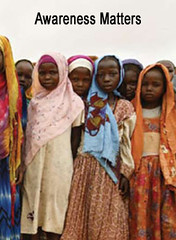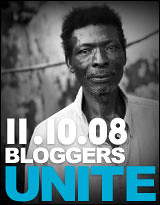
In Iraq, it’s people like 29-year-old television producer Alaa, who covered the trial of Saddam Hussein and was then forced to flee his country and escape to Stockholm, Sweden. He is one of the more fortunate. More than 2 million Iraqis have left Iraq since 2003 and more than 1.6 million are still displaced in their own country with fears that the United States will pull out too soon.
In the Democratic Republic of Congo, it’s the tens of thousands of men, women, and children, some 50,000 of which were even forced to flee refugee camps before they were leveled. Almost none of them has basic needs like food, clean water, or blankets.
In Thailand and Laos, it’s Hmong and Laotian refugees who fled and hid from the government of Laos, which had previously captured them, sent them to jail, or sometimes killed them. Some still struggle after more than 20 years, even if they themselves survived.
All over the world, it’s the estimated 40 million who are not only living without a home, but without a country — many of whom live with the fear of persecution because of race, religion, nationality, or political opinion.
“They beat me every time I made a mistake. They beat me with their hands and feet. They beat me with metal bars …” said Awng Seng, who ran away from the military in Myanmar and became a slave in Thailand. “They would throw pieces of chain at me ... there would be blood all over.”
And others — unlike Seng or Alaa or Lopez Lomong (a refugee who went on to make the U.S. Olympic team) — are people without homes, voices, or even hope. Their stories will never be told.
Bloggers Unite For Refugees: The Butterfly Effect
Almost every time Bloggers Unite encourages bloggers to take action and blog for good based upon input from 150,000 BlogCatalog members around the world, some people surface to question the validity of such calls for action — asking what good it does to ask people to post. Inevitably, a few even take it further and suggest that when people write about a cause, somehow that it endows bloggers with a false sense of making a contribution where more direct and tangible contributions are needed.
Nothing could be further from the truth.
Awareness is always the first step toward change; the second is acceptance and the third is action. And often times, what starts as a simple post has an effect that eventually touches hundreds, thousands, or millions of lives in ways that can never be counted or imagined. But even if it only touches one, who are we to dismiss the impact?
“Who helps a cause they have never heard about?” asks Antony Berkman, president of BlogCatalog.com. “The measure isn’t about the length of a post or even the number of posts … it's in the ability to reach people who have never considered the subjects that bloggers want to write about. I say let them.”
Berkman is right. No single person can be asked to save the world any more than one person at a time. And as long as some cause marketers continue to communicate tasks that are devoid of choice, overcomplicated in execution, or seemingly uphill or impossible, they leave the people they touch not inspired but feeling defeated in that they can never give enough.
On the contrary, throughout history, it has always been when individuals move against the majority of complicity that action takes hold. We saw it last year in America when the Senate passed the Refugee Crisis in Iraq Act, a crucial first step in addressing the needs of millions of Iraqi refugees. We saw it earlier this year when Bloggers Unite and Amnesty International brought attention and inspired action across several Human Rights issues.
And, we see it now from those who write letters to the Prime Minister of Malaysia, asking him to assist the more than 70,000 refugees from Myanmar. Or, perhaps, we can see it now by making a small donation to Refugees International, which is currently focused on the DR Congo. Or perhaps, we can see it today as more than 12,000 bloggers (and counting) make the individual choice to lend their voice and bring awareness to the plight of refugees.
It is in these ways that individual volunteer awareness and action makes a difference. The alternative is silence. Does it work? It works, even if it only works one person at a time.


















